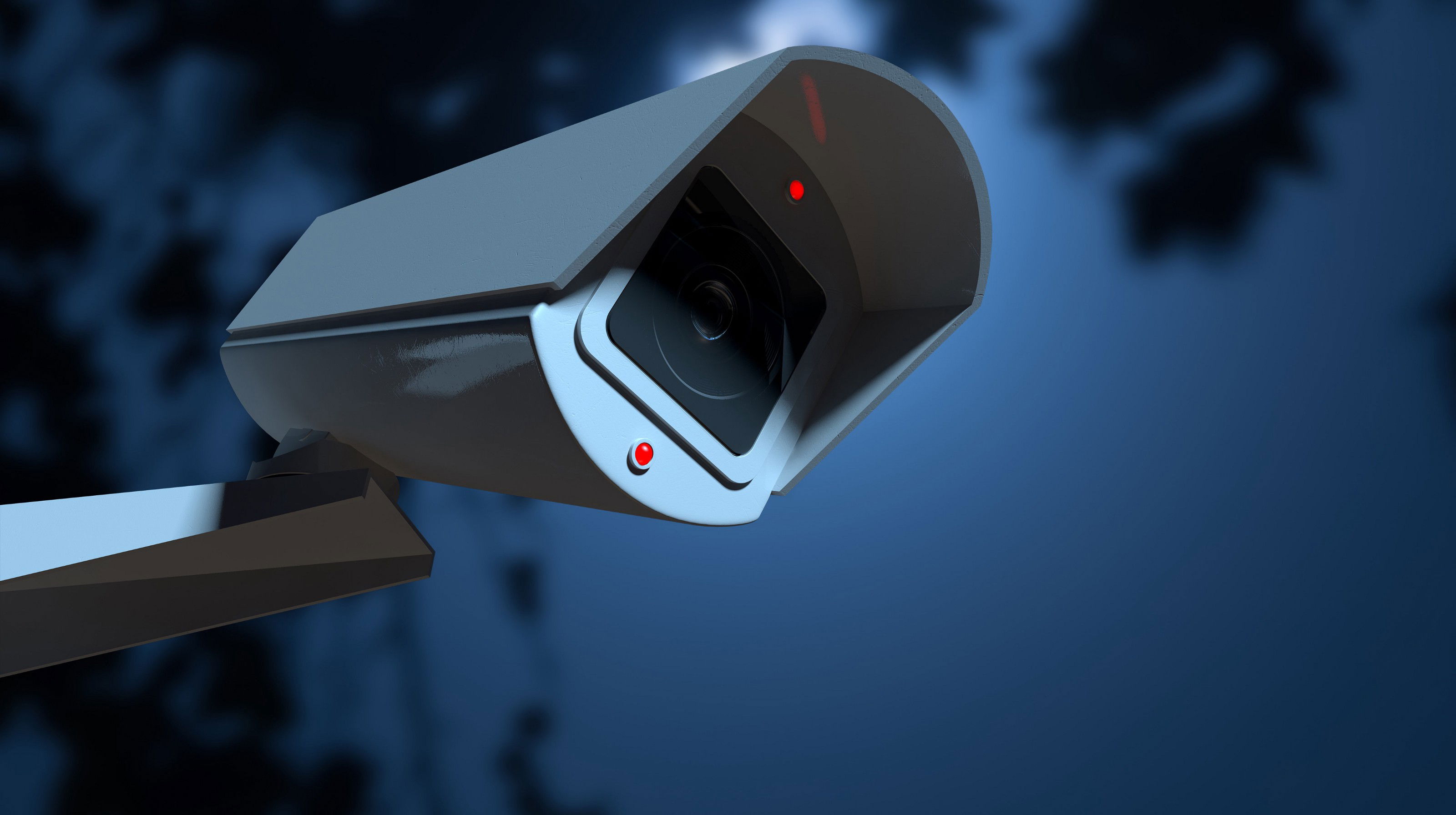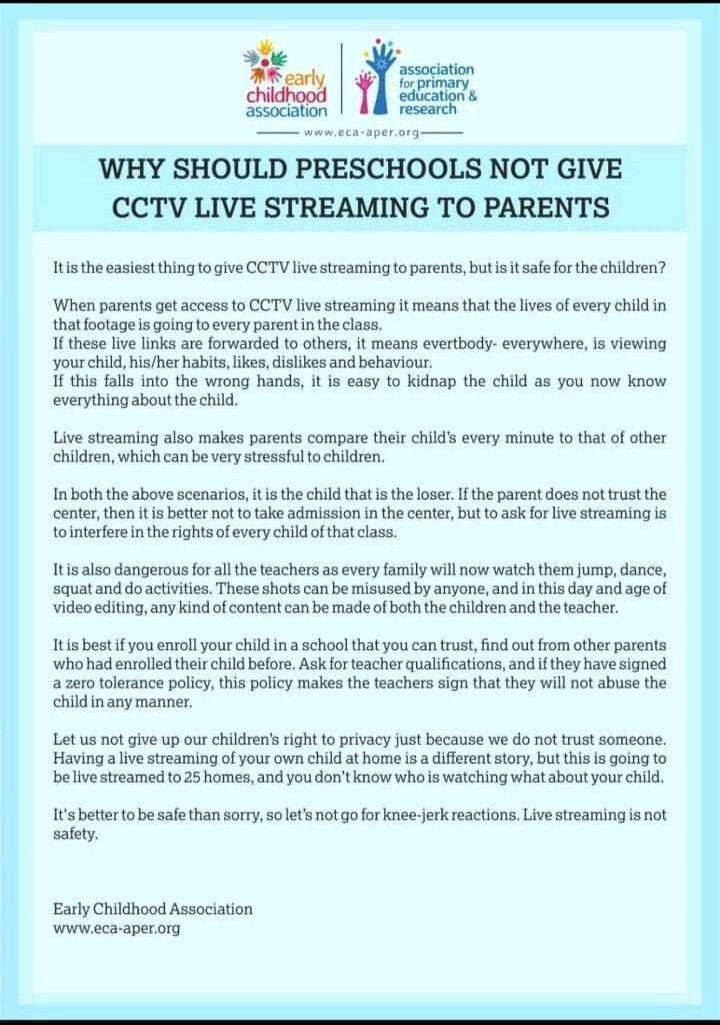Is allowing CCTV live feed to parents a good idea?
Childhood is the stage for vital developments, shaping the child into the individual they grow up to be. And monitoring every second of their lives can have a drastic impact on a child’s upbringing. Many parents may feel that this is an imperative part of their responsibility when they leave their kids in day-care, but facts say otherwise. On one hand, installing CCTV cameras promotes safety and wellbeing of the children, while reportedly restricting their natural growth due to parental disruptions.
Central and State Regulations
The central and state governments have released guidelines on the installation of CCTV cameras in day-care centres, preschools, and primary schools as well as the provisions for parents to have access to live feeds. An order was issued by the women and child development department on the guidelines and compliance of standard procedures, saying that all child care institutions must have adequate number of security officers, guards, CCTV cameras and fire extinguishers to ensure the safety and security of the children.

Neldrac Regulations
In continuation to the order, Neldrac has its own regulations that CCTV cameras must be installed at important places like entry and exit gates, perimeter walls, staircase, playgrounds, dining rooms, entertainment room and administration block to monitor children as well as the staff of every Neldrac centre.
The inclusion of CCTV camera monitoring leads to diminished trust between the caretakers and the parents. The constant monitoring via live feeds also results in the invasion of privacy of the children, the caretakers as well as the privacy of the institution. Parents nowadays have less faith in the caretakers as they are more anxious about their children and rely more on technology instead of keeping in touch with their children’s teachers or caretakers. The child will communicate through more than words and body language. As parents, it is one’s responsibility to keep open and understand all lines of communication with a child. Then comes the matter of the security of the children. We understand that just by installing such CCTV cameras in our centres doesn’t guarantee an environment that is completely safe and secure. Neldrac has a regulation to carry out thorough and stringent background verifications and checks when hiring staff. At Neldrac, we adhere to strong zero tolerance policies when it comes to a child and any parent can view the copies of our Policies and Procedures at their respective centers.
To summarize, parents who have enrolled their child(ren) at Neldrac and are worried about trust issues have a couple of options. They can have a conversation with the center director of the respective branch to address any doubts or concerns they may have about teachers, care givers, or staff members. Additionally, they can reach out to Neldrac via phone at (+91) 40673 37020 or email at "info@neldrac.com" to discuss their concerns confidentially. If needed, they can also request access to the center's CCTV footage from previous days, which is available for viewing on-site.
Early Childhood Association (ECA), India and Association for Primary Education and Research - Advisory Against Live Feed
An article has been published by ECA India advising why it is not a good idea for Preschools or such institutions to give CCTV live steaming to parents.


-Article by Early Childhood Association (ECA) and Association for Primary Education and Research.
Supreme Court on Children's Right to Privacy
There were many articles published in regards to Children's Right to Privacy and recently the Supreme Court Puttuswamy's judgment observed that "just as adults, children also have a right to privacy and it is a natural right, which inheres in every human being by birth”. It’s not that a child gains the right to privacy on reaching a particular age; this right evolves with the child’s age. For example, a sixteen-year-old’s expectation of privacy will be significantly different from a five-year-old’s. And this expectation of the right to privacy arises not only against third parties, but parents as well.
You can find out more information here

